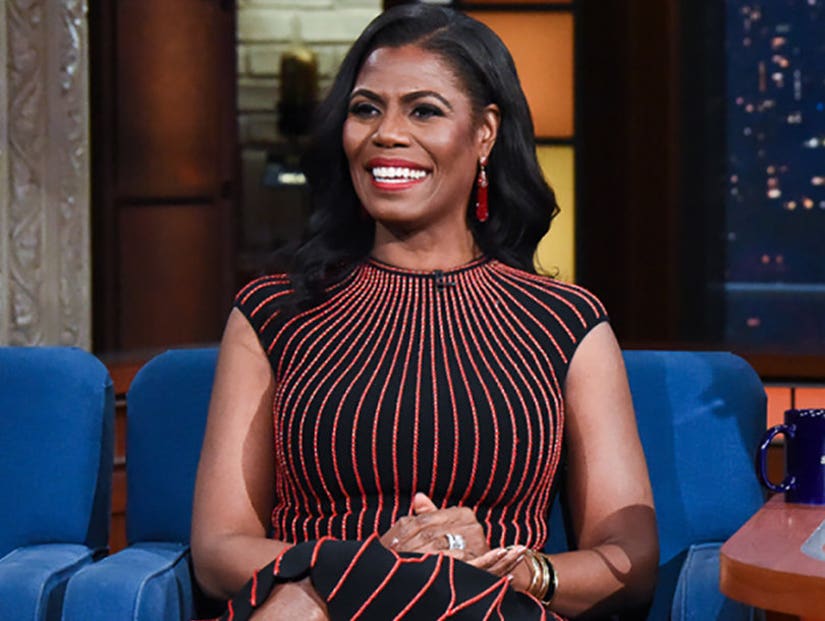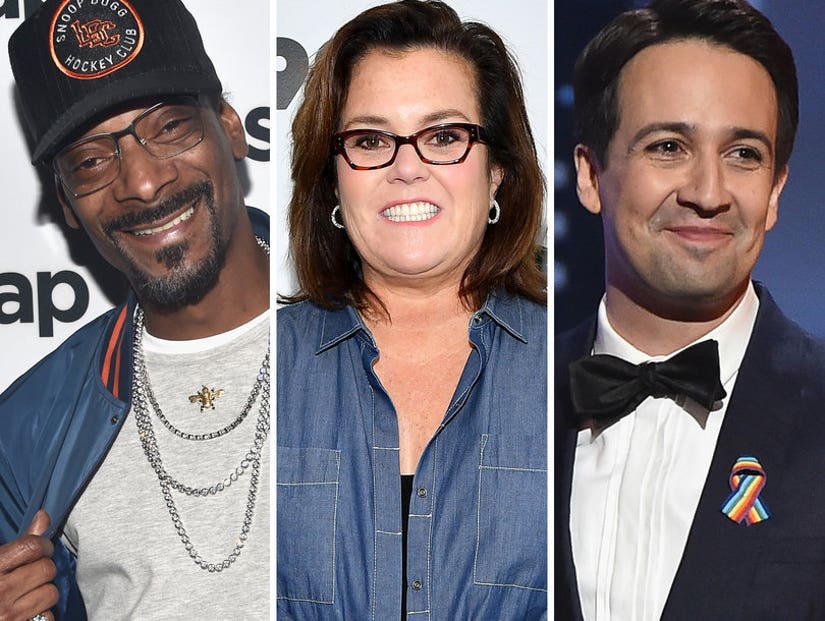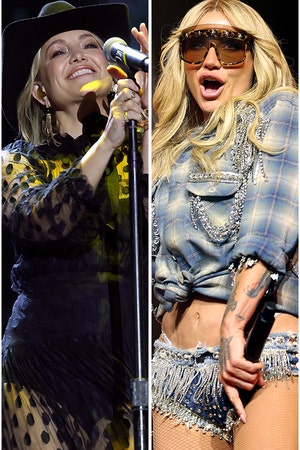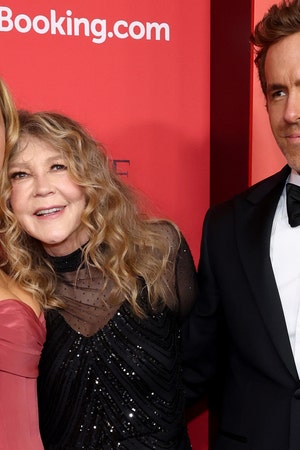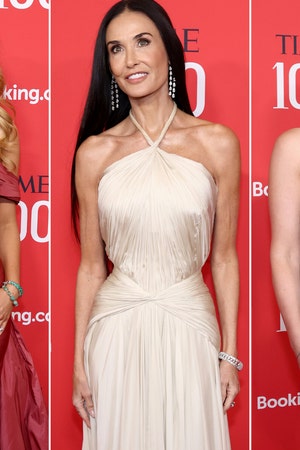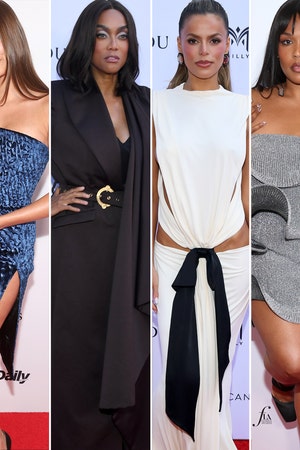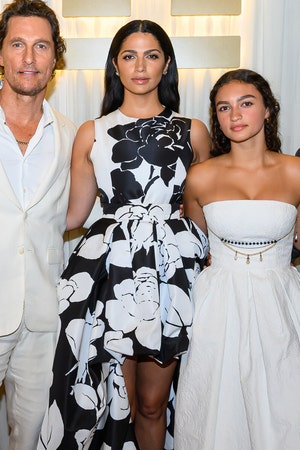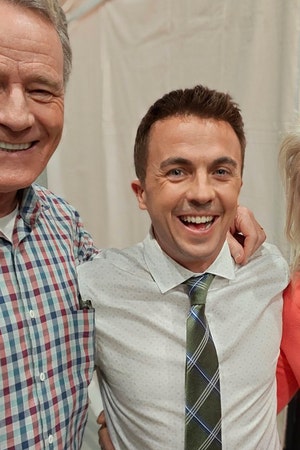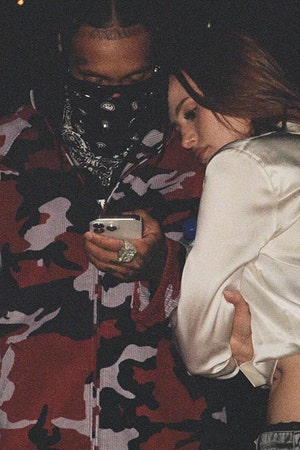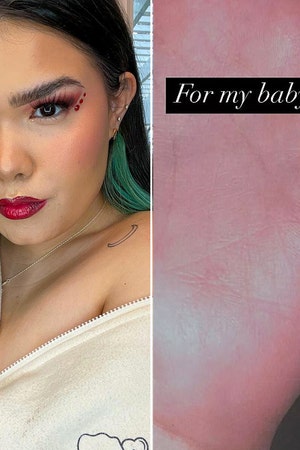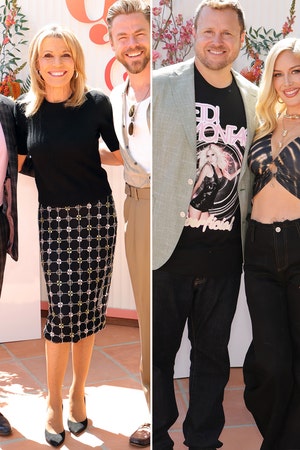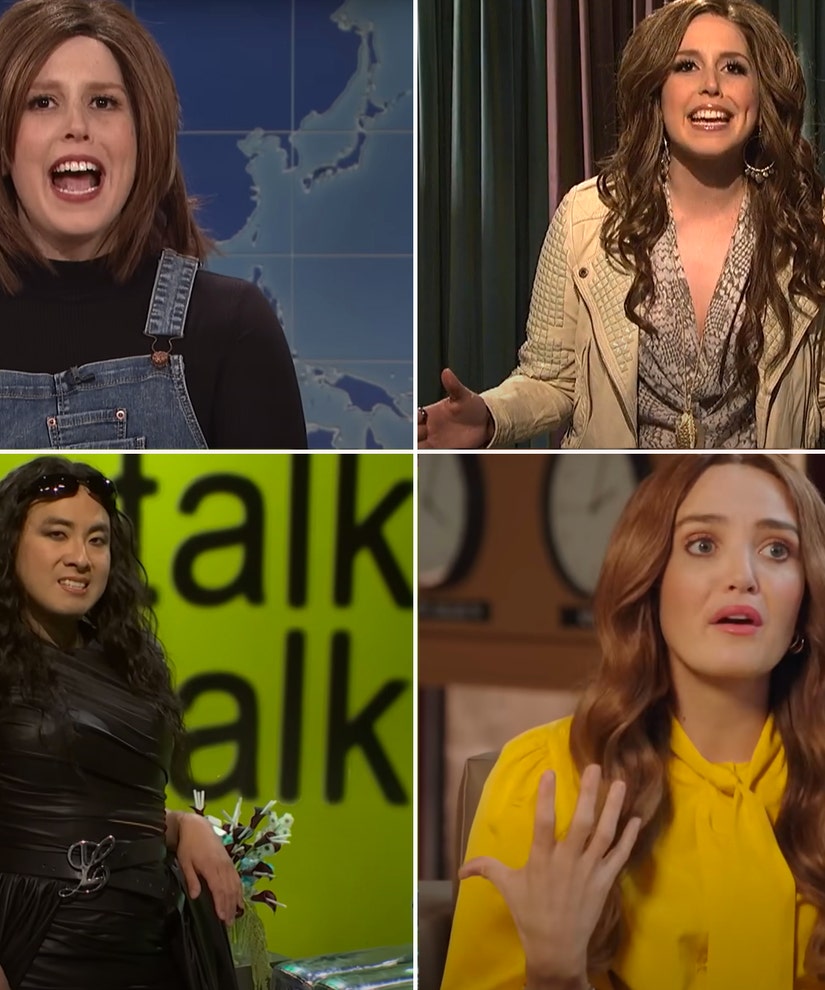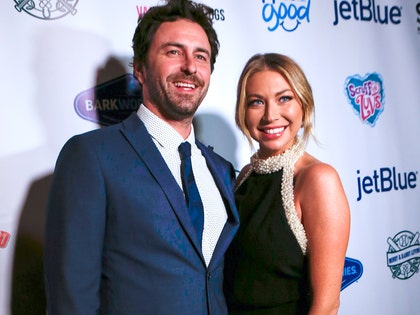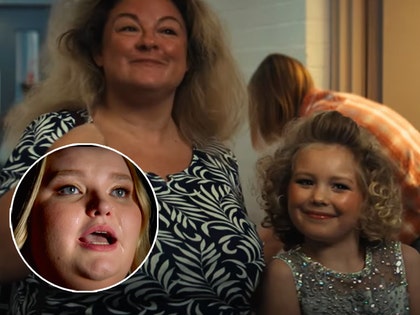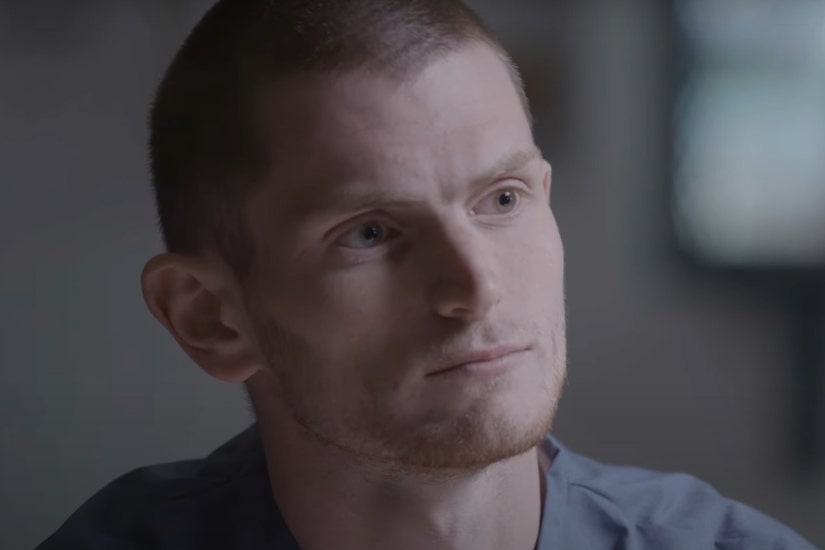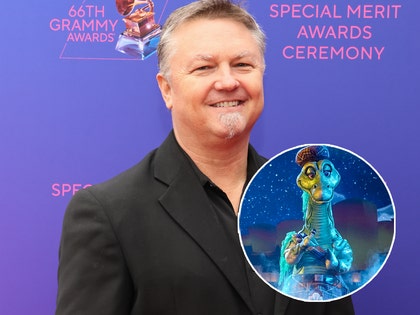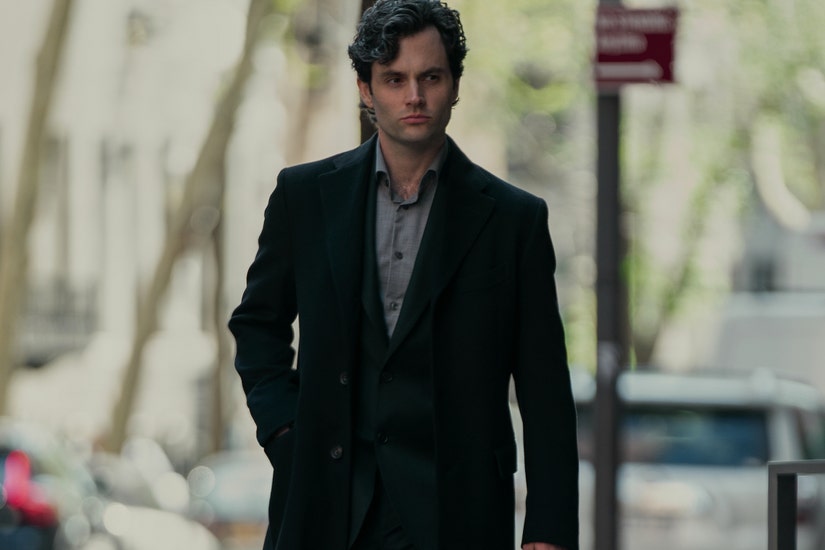From the White House to the "Big Brother" house to "The Late Show" studio on Wednesday night, Omarosa has been making the rounds since leaving Donald Trump's administration in January. Stephen Colbert tried to give her the time to really dig into some serious issues and concerns, but she mostly danced around his more pointed questions.
Fans of the first-ever "Celebrity Big Brother" really enjoyed a more loose and relaxed Omarosa as she talked at least a little more candidly about her years-long association with Trump and what it was like in his White House. Unfortunately, she was back to being polished and very careful with everything she said during this interview. That's not to say she didn't offer some juicy nuggets, but that's all they were when we're clearly hungry for the whole chicken!
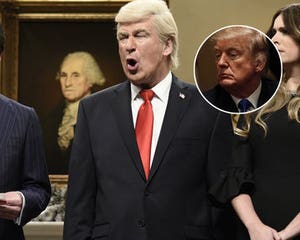 NBC/Getty
NBC/Getty
Alec Baldwin Says It's 'Agony' to Portray Trump on 'SNL' These Days
View StoryThe full chat lasted nearly 20 minutes, but still Omarosa said many times that she didn't feel this format allowed her enough time to really get into a meaningful discussion about the things Colbert was bringing up, like Trump's perceived racism, immigration policy regarding Dreamers, and really a lot of the things he's said and done since entering the White House
Someone needs to book this woman a 20-hour seminar where she can talk as long as she wants so maybe she'll stop playing coy and speak what's really on her mind. In the meantime, we did find seven tasty morsels to hold us over until then.
"It's Not Going to Be Okay"
This troubling quote came during a quieter moment in the "Big Brother" house with Ross Matthews. Understandably, Colbert wanted to know what she meant by telling Ross (and the viewing audience) that everything is not going to be okay. According to Omarosa, this was part of a larger discussion about immigration they were having.
"We were talking about immigration and roundups," she said. "Particularly, we were talking about a family; a man who had been in the country for 30 years and had been sent back. ... It's a very difficult and complicated subject. And I don't believe it can be resolved so simply. ...and that's why I was a bit emotional. Because what's happening with Haitians, El Salvador, what's happening with a lot of the immigrants who are being put out of this country without giving them the consideration that this nation is a nation of immigrants and that we should have compassion, particularly with Dreamers."
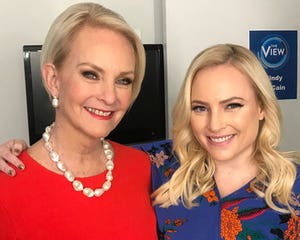 Twitter
Twitter
Meghan McCain Puts President Trump on Blast, Calls His Comments on Her Father 'Incredibly Hurtful'
View StoryTrump's Tweets Haunt Her
"He announced major policy issues on Twitter," Omarosa lamented, expanding on comments she made in the "Big Brother" house that she was haunted by Trump's Twitter feed.
"The transgender ban, for instance, was announced on Twitter. For someone who's in communications like Hope and myself, that's not a place you want to find out at five in the morning about something that would impact so many people's lives," she said. "You want to find out in a policy briefing from the Director of Domestic Policy about those issues, and the subsequent follow-up for it. Not on Twitter."
Led Out of the White House by Security?
"No, no, not at all. I love the dramatics," Omarosa laughed when asked if security escorted her from the White House. "Everybody talks about me going on reality TV, but, I mean, the way they describe this White House, it sounds more reality TV-ish."
According to the reality TV star, her departure was much "less sexy than that."
"I committed to doing a year with this administration," she explained. "We started January 20 of last year and this would have been one year. It's as simple as that. I'd like to make it as dramatic as it would be on a reality TV show, but it's just as simple as that ... I committed to doing one year and I think one year in the Trump White House is more than enough for me."
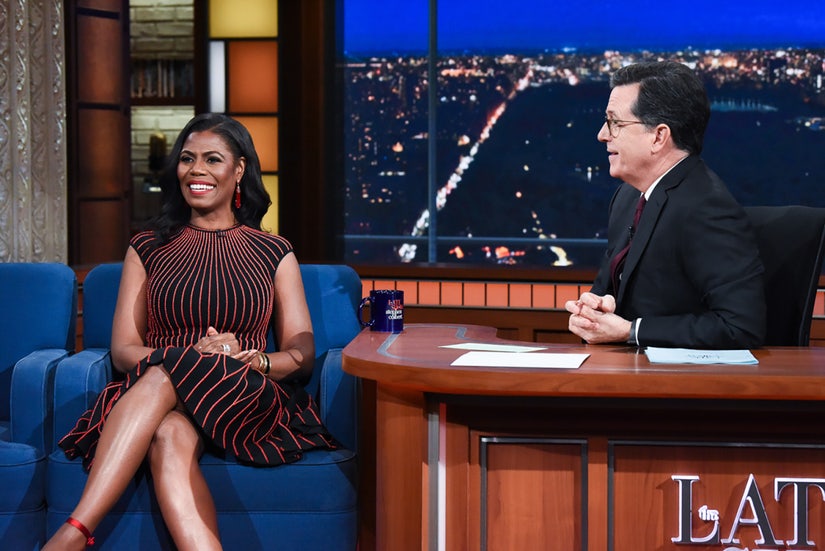 CBS
CBS
"Unacceptable, Awful, Unequivocally Unacceptable"
Colbert decided to play a game with Omarosa where he would run down a list of things Trump has said or done and she would raise her hand if she thinks he shouldn't have done them. Instead of one by one, she told him to just read through it and she would answer at the end.
He kicked things off with Trump's infamous "Grab 'em by the pussy" line, followed by, "Charlotesville, blame on both sides, fine people on both sides, defend Roy Moore, Mexicans as rapists, fighting with a gold-star family, attacking John McCain for being a POW, picking a fight with John Lewis, throwing paper towels at hurricane victims in Puerto Rico, the Muslim ban and attacking U.S. Federal Judge Curiel for being Mexican."
Her response at the end was merely a series of the words "unacceptable" and "awful" with an "unequivically unacceptable" thrown in for good measure at the end. When Colbert pointed out that she worked for him during most of these events, Omarosa touted that she didn't work for him anymore and added, "Nor do I regret trying to be a voice of reason at the table and try to be the change."
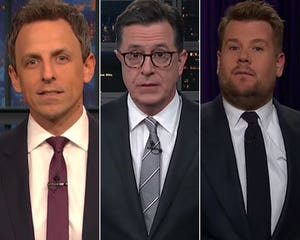 NBC/CBS
NBC/CBS
Late-Night Hosts Are Loving Donald Trump's Son-In-Law Jared Kushner Losing Top Secret Security Clearance
View StoryTrump is "Racial, Not Racist"
This is one of the topics Omarosa felt there wasn't enough time to discuss, as she'd made the original comment on a morning talk show and didn't feel these formats allowed for such a nuanced conversation. Colbert certainly wasn't hurrying her along -- as evidenced by the length of the uncut interview -- so she was able to at least dip her toe into that discussion.
"I don't want to trivialize that have happened in this administration or some of the things that he has done," she said of the Trump White House, again expressing concerns about time constraints. "He is a racial person. The things that happen when he talks about Mexicans or when Charlotesville happened; those are racially charged issues. The moment we smack the label of racist on someone, the discussion stops. If I say you're a racist, the person doesn't want to come to the table and learn why you put folks in that predicament and how you should learn and how you should reverse those ways that are very decisive."
Colbert said it seemed like she was still splitting hairs, as if she was avoiding the use of the term "racist" simply because it might shut down a productive conversation, even if the evidence of behavior looks pretty racist.
"Racists and racism is real in this country. And some of the things that I talked about in terms of being troubling are things that certainly would fall into those categories ... so I'm not splitting hairs," Omarosa countered. "We need to have a bigger discussion, and particularly in the context of this administration where so many things have happened that have been racial and people have defined it as racist; there's a bigger discussion that needs to happen."
Inauguration Crowd Size
Trump keeps talking about his electoral college victory over Hillary Clinton, so his detractors are still talking about the White House claims that his inaugural address audience was the biggest ever. Omarosa was there, so when she wouldn't tell him what Hope Hicks had told little "white lies" about, he dug into this older issue.
"I got to sit in the inauguration for Bill Clinton, Bush, Obama and when we got to the Trump inauguration and they said this was the largest crowd size, I'm like, 'Man, I've been to a lot of inaugurations. This wasn't the biggest crowd size,'" she said. "But I didn't want to be the one to break it to him. I didn't want to be that person."
 NBC/Comedy Central/CBS
NBC/Comedy Central/CBS
Late-Night Stars Laugh at Trump for Saying He Would Have Run Into Florida Shooting
View StoryLeaving Felt Like Being Freed From a Plantation
Another provocative headline comment from Omarosa's time in the "Big Brother" house, she equated leaving Trump's White House to being freed from a plantation, a statement that obviously comes with a lot of historical weight and significance -- especially coming from an African-American woman.
"The White House that I worked in, that Trump administration, it was troubling," she explained. "It was very difficult, and my analogy of it being a plantation, being an ecosystem where people feel oppressed is pretty clear. When you aren't allowed to do the job that you were brought to do to help be a change agent, to help be the liaison for communities that needed that assistance, that's where that oppression comes from and that's what that analogy meant, Stephen."
She went on to say that she couldn't apply that sentiment to anyone else working in the White House. "I was speaking for how I felt as the only African-American senior advisor to President Donald Trump," she said.
As for how she plans to be a "change agent" in the next phase of her life, she explained, "I'm going to focus on my ministry, because my calling to the ministry is more important than anything else that I've done, and I don't want to neglect it."

